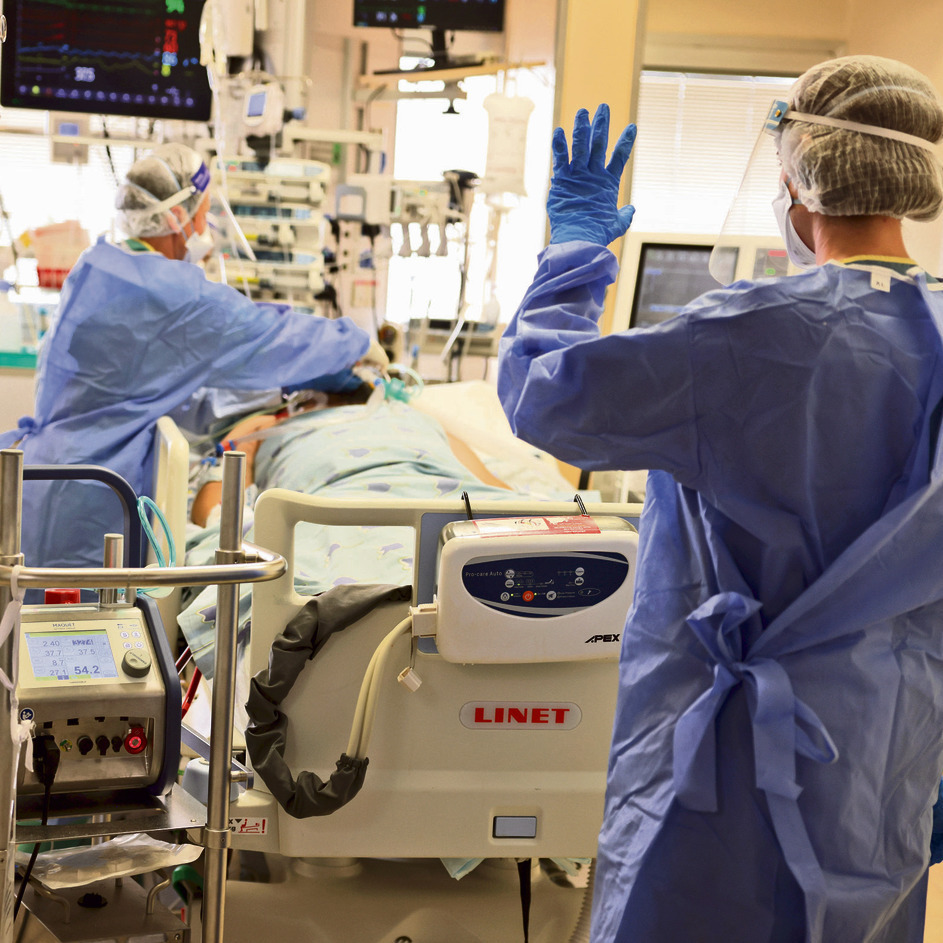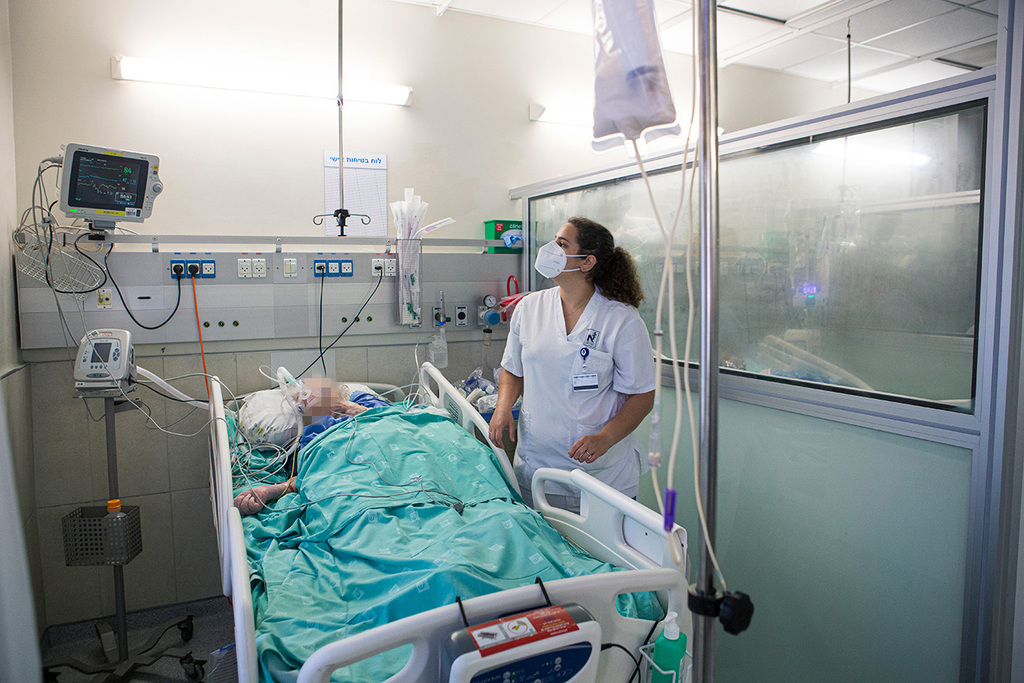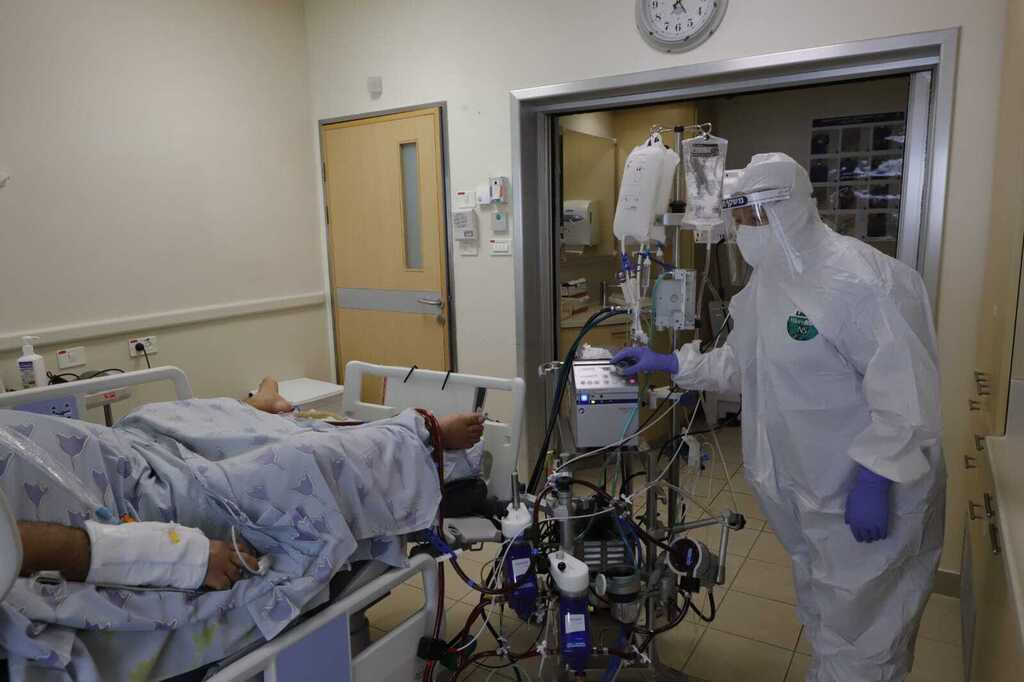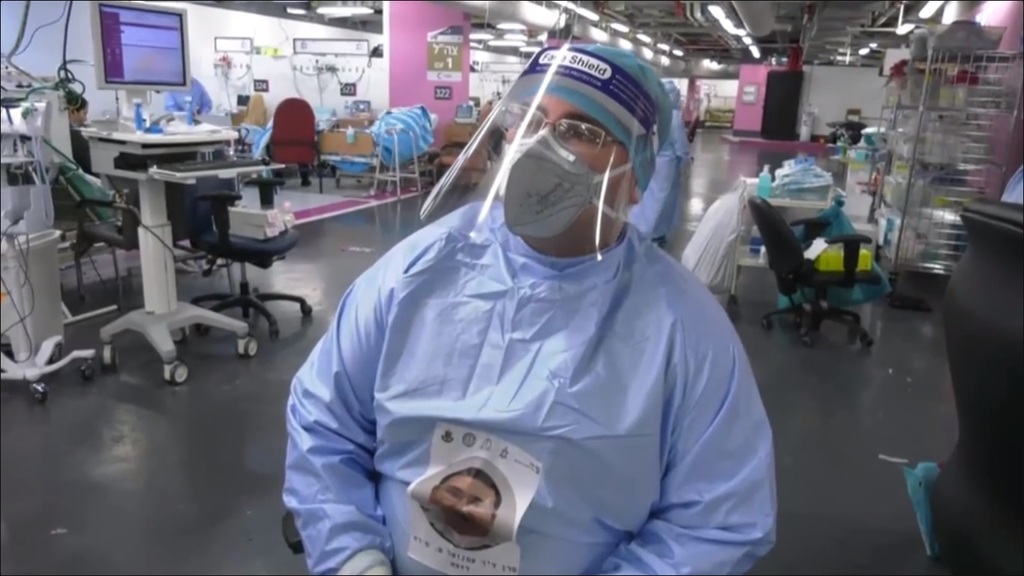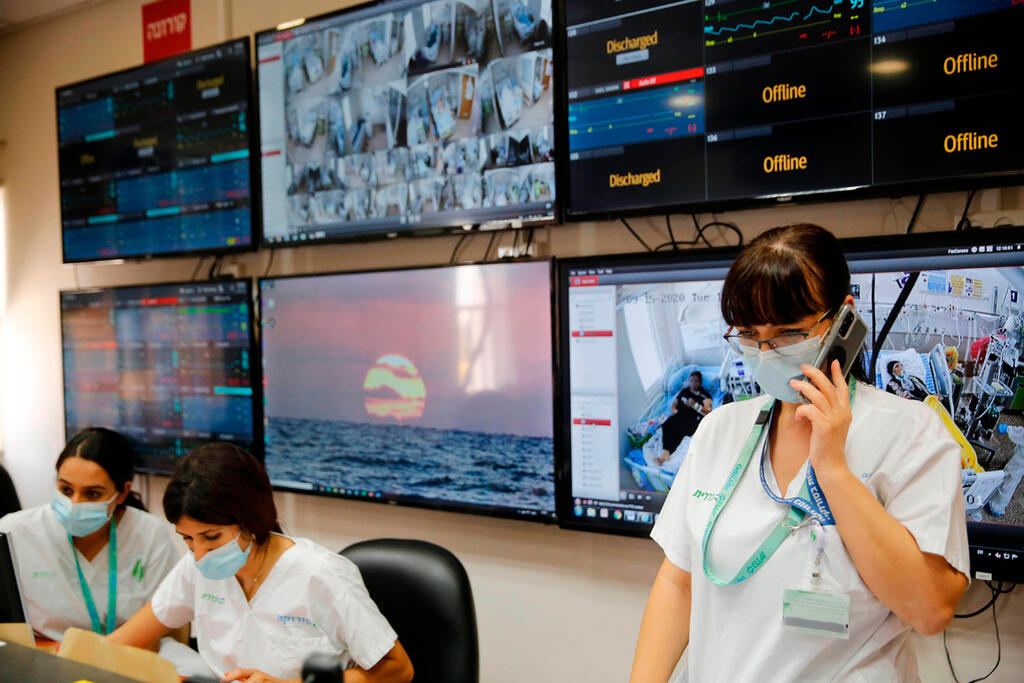Israel's fourth coronavirus infection wave, which appears to be its worst one yet, massively increased the demand for potentially life-saving ECMO machines.
ECMO [extracorporeal membrane oxygenation] machines provide prolonged cardiac and respiratory support to people whose heart and lungs are unable to provide an adequate amount of gas exchange or perfusion to sustain life.
The country's hospitals have dozens of such machines, but they require precious resources, infrastructure and skilled manpower to operate.
And now as their availability is running low, doctors are forced to make the difficult and fateful decision each time a patient requires an ECMO machine — is their chances of survival high enough to justify allocating the precious device to them?
With many of the current morbidity wave's severe cases recorded among the unvaccinated, the use of the ECMO device raises even tougher moral conundrums.
The machine does not cure coronavirus, but merely "provides" the patient with enough time for their lungs to heal — a long and arduous process that could take weeks, during which medical teams cannot leave the patient's bedside even for a moment.
Reporters from Ynet's sister publication Yedioth Ahronoth were allowed to visit coronavirus wards at several Israeli hospitals and witness the situation on the ground, with overburdened doctors and concerned families all saying that vaccination is the only way to avoid the gruesome images.
Shamir Medical Center (Assaf Harofeh)
Shamir Medical Center in Be'er Ya'akov is Israel's fourth-largest public hospital and has only five ECMO machines, three of which are currently in use. One machine must always be left available in case others malfunction.
But the ECMO saga is not only a story of numbers, but also of heartbreak and even joy when patients, at least some, recover.
Dr. Eduard Ilgiyaev is head of the hospital's General Intensive Care Unit, which has been converted to take in serious coronavirus patients. "A patient at this stage who is not connected to an ECMO is all but certain to die," he said.
"COVID is a lung disease. When the respiratory system collapses, the patient stops breathing. The machines allow us to keep them alive and buy time, be it days or weeks, for their lungs to recover. The device pretty much brings people back from certain death."
Over the run of the pandemic, Shamir Medical Center has treated 40 patients with ECMO machines, 35 of whom survived.
"You receive a patient in the last moment of their life, unable to breathe, and after a while, they slowly regain consciousness, start breathing and eating on their own again and get back on their feet," said Ala Agbaria, a nurse at the ward.
"The moment a patient hugs their kids and spouse on their way home is why we have been working around the clock for a year and a half now."
Every patient requires around-the-clock care. A nurse must constantly examine the machine since even the slightest mishap could result in a patient's death. When a problem does arise, teams only have moments to react.
Tel Aviv Sourasky Medical Center (Ichilov)
Sourasky Medical Center has seven ECMO machines. Five are designated for coronavirus patients and four of which are currently occupied.
Shlomi Marom, a perfusionist and the head of the hospital's biotechnology and ECMO apparatus, spends his day running from room to room. "All of our ECMO patients are unvaccinated," he said, adding that one of them is in their 30s.
Ichilov also treats patients from other hospitals that do not have available machines.
"I have worked here for 30 years, I have never seen so many patients," Marom said. "We are working in uncertainty, not knowing how the day will end. Even if the situation is 'stable,' I cannot be more than seven minutes away at all times."
ECMO serves as a last-ditch effort for coronavirus patients. For this reason, doctors are forced to deal with hard ethical dilemmas and decide who will get the treatment.
"Every patient has his or her own needs, we do not always know who to connect," Marom says.
"Due to lack of trained medical teams, we tend to not connect elderly patients [to ECMO], also because the machine is less effective with older age groups. The deterioration in a coronavirus patient's condition is gradual, so we have some time to decide how to act."
All operations are conducted through text messaging between doctors. In the absence of organized treatment protocols, doctors are forced to personally decide who will get to live and who will not.
"It is a total mess," Marom says. "The state needs to step in and publish a thorough protocol on how hospitals need to operate their ECMOs."
Coronavirus patients are not the only ones who might require an ECMO. The machine is also used in heart surgeries, of which the hospital has three a day.
"In the past, emergency care took 20% of our staff," Marom said. "Now the situation is different, emergency care surpasses everything. Had everyone been vaccinated, we would not have ended up in this situation."
Rambam Health Care Campus
Rambam Health Care Campus in Haifa has six ECMO machines, all of which are taken. Four machines are in use to treat unvaccinated COVID-19 patients, including a 39-year-old patient, a 53-year-old patient and two others in their 40s.
6 View gallery
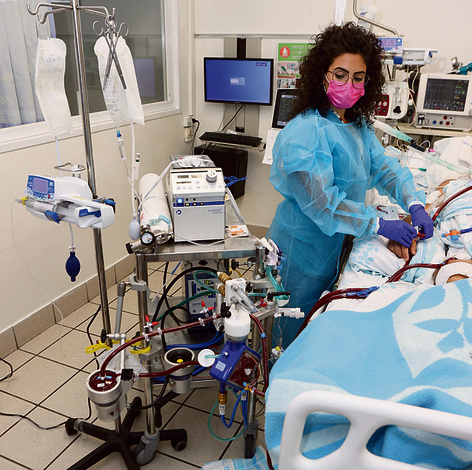

A coronavirus patient connected to an ECMO machine at Rambam Health Care Campus
(Photo: Gil Nechushtan)
Last Thursday, the hospital's capacity was exceeded after a seventh patient required ECMO and doctors had to ask for another machine from Baruch Padeh Medical Center.
"We did not have the staff to take care of her," said Rami Heisler, head of Rambam's ECMO ward.
"The situation is beyond our control. We have six patients already, so the workload is insane. We are still in need of nurses who went through ECMO training, only they can treat these people."
Heisler said that the seventh patient was connected to a backup unit while they waited for the additional ECMO machine to arrive from Baruch Padeh.
According to him, the Rambam currently holds three units on loan from other hospitals — one from Baruch Padeh, a second from Kaplan Medical Center and another third from Rabin Medical Center.
Dr. Yaron Bar-Lev, head of Rambam's coronavirus ward and CEO of Israel's ICU union, says that in fact, Israel is short on ECMO machines, but trained personnel to operate them.
"Around 40–45 ECMOs are currently in use and another 35 free," he says. "The problem is not with the number of machines, but manpower trained to use them."
Bar-Lev said that while the country is still far from total catastrophe, the workload is excruciatingly difficult for teams.
"It is a very complicated game of musical chairs," he says. "You always have to find an opening for patients. We know there is a patient who got seriously ill after recovering from the virus at Sanz Medical Center. As far as we know, the hospital still cannot find a place for them."
Soroka Medical Center
Soroka Medical Center in Be'er Sheva has nine ECMO machines, seven of which are occupied. Since the beginning of the pandemic, the hospital had to treat 35 patients requiring ECMO.
Dr. Ori Galante, a senior doctor at the hospital's ICU and head of the ECMO department, oversees the operations.
"Wars and plagues are not won on the battlefield, they are won by being avoided," he said. "Imagine for a second that everyone was vaccinated. The whole country would have four patients on ECMO in total and 20 serious cases.
"We have no other work except coronavirus. Out of the 45 patients on ECMO across Israel, 90% are unvaccinated. The unvaccinated have taken the country and its health system hostage. This could have been prevented."
Dr. Galante also affirmed that the country was not struggling to find available machines but manpower and resources. He says that over the weekend, he had to transfer an ECMO patient to another wing of the hospital.
"To do this, you need me, a cardiologist, another specialist, two nurses and a sanitary," he said. "Seven people just to move someone to another bed. That is the crux of it — manpower and resources."


